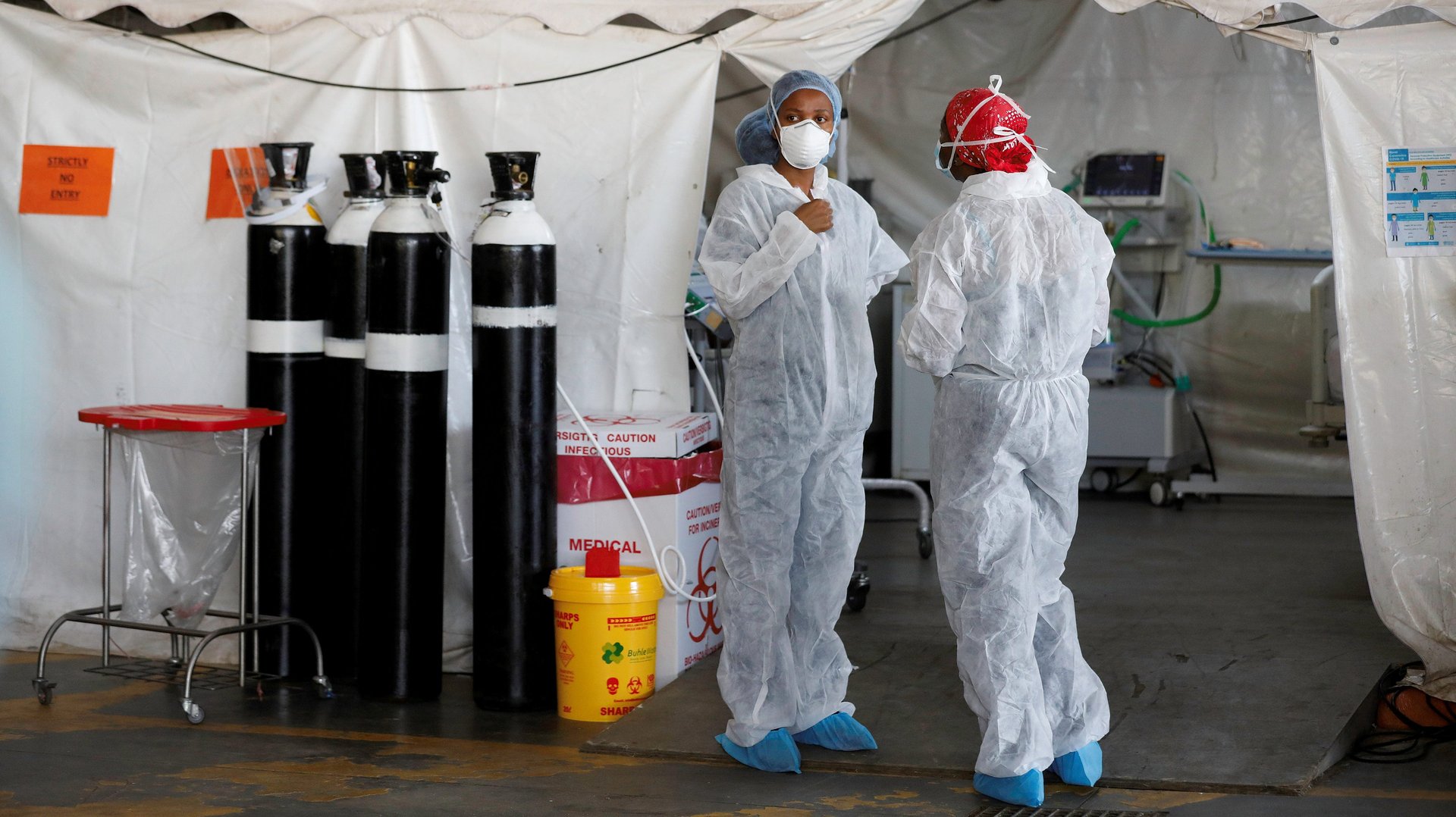South Africa halts its AstraZeneca vaccine rollout over local variant concerns
South Africa is recalibrating its rollout of vaccinations against Covid-19 out of concerns that a local variant of the virus may be evading the Oxford-AstraZeneca vaccine, which the country had hoped would put it on the path to herd immunity.


South Africa is recalibrating its rollout of vaccinations against Covid-19 out of concerns that a local variant of the virus may be evading the Oxford-AstraZeneca vaccine, which the country had hoped would put it on the path to herd immunity.
The government said on Sunday (Feb. 7) it would halt plans to begin vaccinating frontline healthcare workers with a vaccine developed by AstraZeneca and the University of Oxford. The decision follows the publication of preliminary, limited studies by Oxford University suggesting the shot provides only minimal protection against mild to moderate infections from the variant, known as B.1.351 or 501Y.V2.
Instead, South Africa’s government will pursue plans to immunize those workers using the Pfizer vaccine, and a single dose one developed by Johnson & Johnson (J&J), which appears to be effective in preventing hospitalizations and deaths from the variant, which accounts for more than 90% of new infections in the country.
“It’s disappointing because we were ready to run [with the AstraZeneca vaccine], but we need a bit more work to figure out what approach we’ll use in order to effectively deploy it,” said Zweli Mkhize, South Africa’s health minister.
The Oxford-AstraZeneca vaccine is on track to become one of the most widely distributed globally, with millions of doses headed to 136 countries through COVAX, a World Health Organization-led coalition focused on equitable distribution. Its efficacy against mutations of the virus is being closely monitored. France’s health authority last week joined Germany and Austria in advising that the AstraZeneca vaccine be restricted to under 65s, citing a lack of data for its efficacy in older populations.
As of Saturday, South Africa, with a population of 58 million, had logged nearly 1.5 million cases of Covid-19, including 46,180 deaths, at least triple the number of cases of any other country on the continent.
The change comes as a second wave of Covid-19 in South Africa begins to subside. Though loosened recently, a nationwide mandate on the wearing of masks and restrictions on public gatherings and the sale of liquor remain in effect as the government braces for a resurgence of infections this June when winter arrives.
The decision to shelve the AstraZeneca vaccine came six days after the delivery to South Africa of the first tranche of 1.5 million doses, which the country had purchased from the Serum Institute of India. Though the vaccine proved in human trials to protect against previously circulating variants of the virus that causes Covid-19, those trials ended before the B.1.351 variant emerged.
The B.1.351 variant first appeared in South Africa’s Eastern Cape province in December and has since spread to at least 32 countries. Scientists are now working to determine whether the AstraZeneca vaccine might still offer some protection against severe disease from the B.1.351 variant.
“These early data, [which] have been submitted for scientific peer-review, appear to confirm the theoretical observation that mutations in the virus seen in South Africa will allow ongoing transmission of the virus in vaccinated populations, as has been recently reported even in those with prior infection due to earlier circulating variants,” the researchers write.
Prof Sarah Gilbert, the vaccine’s lead researcher, told the BBC that a modified version of the vaccine designed to combat the variant should be ready later in the year.
In the meantime, South Africa will move forward to vaccinate health-care workers with the J&J jab, which proved in human trials to reduce the risk of hospitalization and death from the B.1.351 variant by 85% in a wide range of adults.
Scientists hope to leverage labs and personnel deployed in a clinical trial of the J&J vaccine in South Africa to expedite the rollout, according to Glenda Gray, a professor at the University of the Witwatersrand and president of the South African Medical Research Council, which led the J&J trial locally.
Apart from its ability to prevent serious illness, the vaccine can be administered fully in one dose and stored in a regular refrigerator—both factors that can simplify and speed its rollout nationwide. “A single shot of the J&J vaccine will stop hospitalization and death,” said Gray at Sunday’s briefing. “This is a silver bullet.”
The scientists plan to supplement supplies of the J&J vaccine with a Covid-19 vaccine developed by Pfizer. The Pfizer vaccine, which requires two doses and ultra-cold storage, protected against the South Africa variant in initial laboratory studies.
South Africa has secured 9 million doses of the J&J vaccine and 20 million doses of the vaccine from Pfizer. Mkhize said the government continues to negotiate with both companies and other manufacturers over additional purchases but declined to give details.